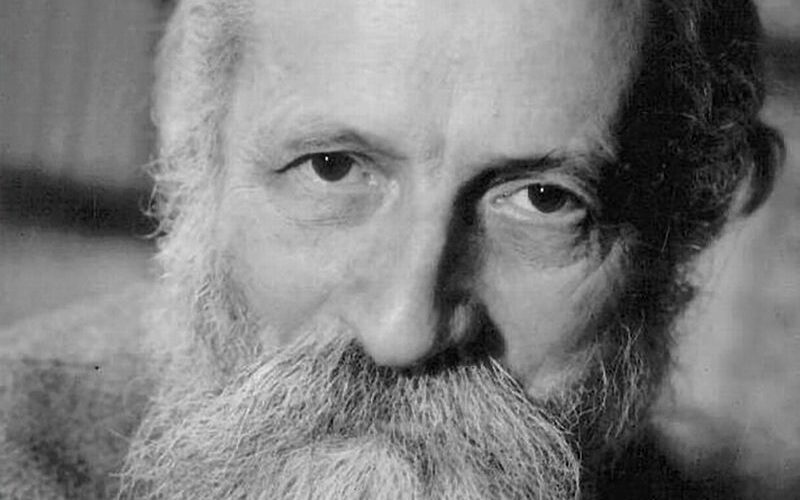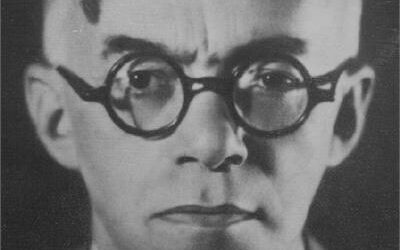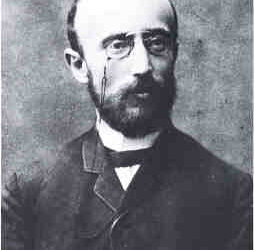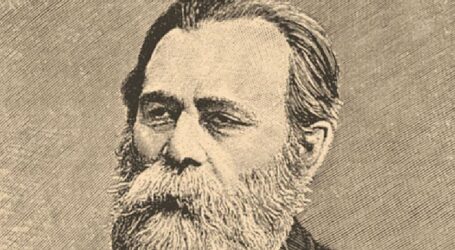Martin Buber: Biography

Born: February 8, 1878, Vienna;
Died: June 13, 1965, Jerusalem
Martin Buber was an Austrian-Jewish philosopher, writer, and Zionist born in Vienna on February 8, 1878. His father was an agriculturalist, and he and his wife were both assimilated Jews. When Martin Buber was 3 years old, his parents got divorced and he was sent to live with his grandparents to be raised in their care. His grandfather, Solomon Buber was a wealthy philanthropist who was a Jewish scholar who produced rabbinic midrash literature, or Jewish literature that interprets and explains Biblical texts. In Martin’s youth, he became detached from traditional Jewish religious life. He went on to study philosophy and art in Vienna. 1
In the 1900s, Buber became active in the Zionist movement. In 1901, he was recruited by Theodor Herzl, the modern founder of Political Zionism, to become the editor of the Zionist publication “The World.” Buber would begin to turn away from Herzl’s Political Zionism and move toward Cultural Zionism led by Ahad Ha’am and Chaim Weizmann. This divergence between Herzl and Buber arose as a result of their differing views on Zionism. Theodor Herzl sought the establishment of a Jewish state that was backed by international law through political diplomacy. Martin Buber sought a spiritual renewal of the Jewish people and immediate agricultural settlements in Ottoman Palestine. In Martin Buber’s epilogue in his book Paths in Utopia, published in 1949 he writes that “the era of advanced capitalism has broken down the structure of society… the repeated attempts that have been made during the last 150 years, both in Europe and America, to found village settlements of this kind, whether communistic or co-operative in the narrower sense, have mostly met with failure.”2 However, Buber found one exception to this, “as I see history and the present, there is only one all-out effort to create a Full Co-operative which justifies our speaking of success in the socialistic sense, and that is the Jewish Village Commune in its various forms, as found in Palestine.”3
In the 1930s, Buber became the head of the Free Jewish Teaching House, a Jewish Adult Education institution in Frankfurt. However, after the Nazi Government began forbidding lectures by Jewish professors, Buber immigrated to Palestine and became a Professor of Philosophy at the Hebrew University of Jerusalem.4 While in British Palestine, Martin Buber became a co-founder of the political party, Ihud, which was founded in 1942. This political party supported a binational state where Jews and Arabs would live in peace and brotherhood with each other. Buber also did not shy away from criticizing many of the actions of the State of Israel that he saw as wrong.
Martin Buber’s Zionism was based on his conception of Jewish identity that was not solely religious or nationalistic, but rather a hybrid of the two. He supported Zionism as “the self expression of a particular Jewish collective that could be realized only in its own land, on its soil, and in its language. The modern state, its means and symbols, however were not genuinely connected to this vision of a Jewish renaissance… in his letter to Gandhi, Buber insisted on the spatial orientation of Jewish existence and defended the Zionist cause against the critic who saw in it only a form of colonialism.”5
Martin Buber would die in Jerusalem on June 13, 1965. At his funeral, the Arab Students’ Organization placed a wreath on his grave.
- Simon, A. Ernst. “Martin Buber.” Encyclopedia Britannica, June 9, 2024. https://www.britannica.com/biography/Martin-Buber-German-religious-philosopher. ↩︎
- Buber, Martin. Paths to Utopia. (Boston, MA, 1949), 139-141. ↩︎
- Ibid. ↩︎
- Simon, A. Ernst. “Martin Buber.” Encyclopedia Britannica, June 9, 2024. https://www.britannica.com/biography/Martin-Buber-German-religious-philosopher ↩︎
- Zank, Michael and Zachary Braiterman, “Martin Buber”, The Stanford Encyclopedia of Philosophy, Edward N. Zalta & Uri Nodelman (eds.), https://plato.stanford.edu/archives/sum2023/entries/buber/. ↩︎





